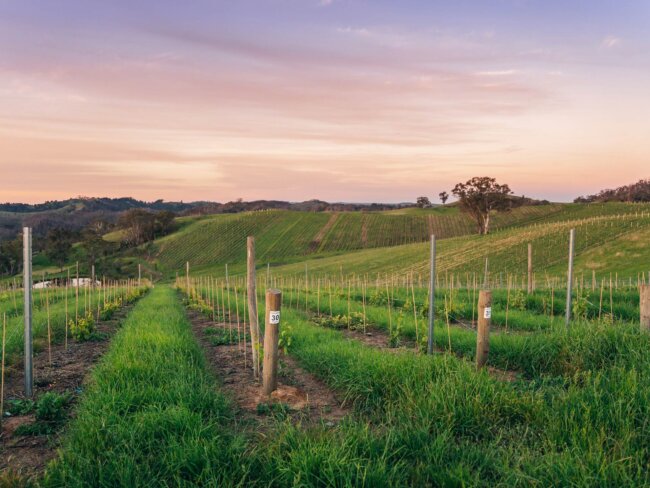Vinteloper Vineyard, Adelaide Hills
Originally working only with sourced fruit, David Bowley’s Vinteloper found a home vineyard in the Adelaide Hills only for it to be savaged by fire in 2019. Restoring those lost vines is a demanding project, but it goes hand in hand with his process of regenerative agriculture of both vineyard and non-vineyard land. Extensive planting of native flora, a considered water management strategy and solar power for all electricity needs are all part of Bowley’s approach that is tilted to sustainability on both a local and larger scale, while constantly pushing for quality gains. The site is responsible for the ‘Home’ Shiraz and a pinot noir, shiraz and pinot gris in the Vinteloper ‘White Label’ range.










